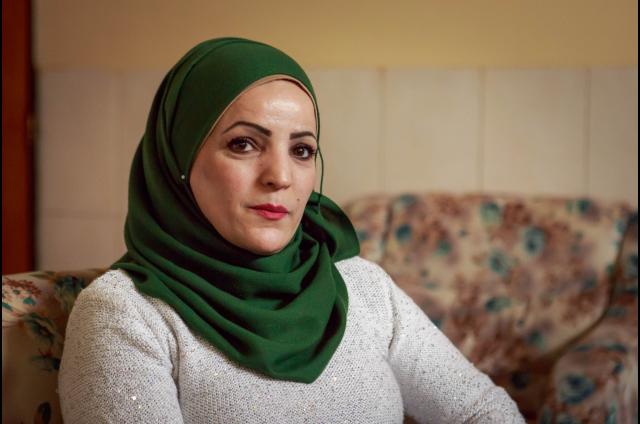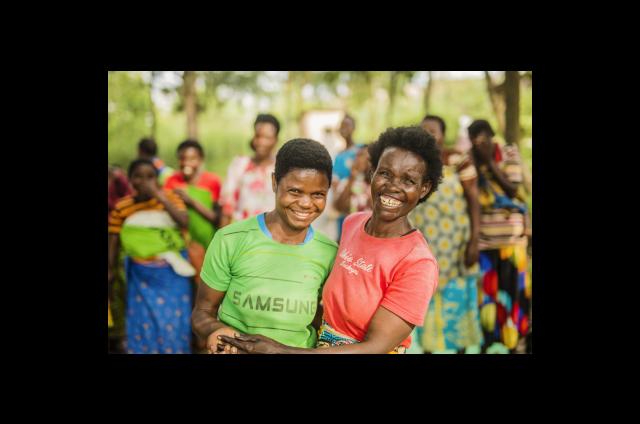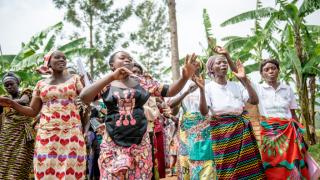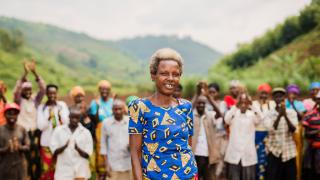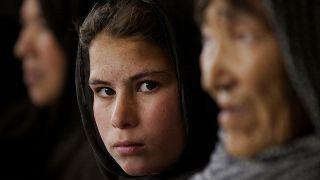What It’s Really Like… Working For A Charity
The authenticity of being able to say that there are countless challenges and hurdles, but also that powerful, fundamental and positive change is possible is the best part of my job
When I think back to the 'aha moment' that made me consider working in the third sector, I remember an exercise I took part in during my second year at university. We looked at the distinction of ‘helping’ versus ‘serving’ – the difference between giving people hand-ups as opposed to handouts. While helping is based on inequality and implies an incurred debt, serving is mutual: I am as served as the person I am serving.
This sense of purpose – the feeling that we’re all connected in working towards something bigger than ourselves – grew and motivated me to pursue a postgraduate degree in international development.
To better understand how my coursework related to practical changes in developing countries, I volunteered in Ghana, where I learned a saying: "When you create good for others, you create good for yourself." I spoke about this idea in my TEDx talk, Girl Power 2.0, and I knew I wanted to work for an international charity focused on education; supporting people to develop the knowledge, skills and confidence they need to achieve sustainable change.
This is why I feel so fortunate to work at Women for Women International, a charity that for almost 25 years has been committed to serving women survivors of war and empowering them with the tools to rebuild their lives.
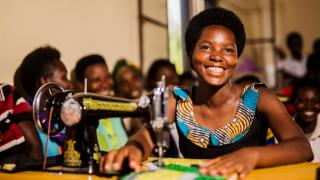
There is so much energy and strength in bringing women together. It’s empowering to play a role in that
When I visited our programme in Kosovo in 2016, I met so many inspiring graduates [of the programme] who – against many odds – have managed to slowly transform their lives through resourcefulness, hard work and sheer determination. Women who cultivate crops to feed their families, sell the most beautifully intricate handicrafts, and have started their own shops, hair salons, cooperatives and businesses. Mothers, daughters, sisters, friends: women who are the role models for the future of their communities and countries.
“The classes that I attended really made me brave – they pulled out the best from us,” shared Sylhane, who has been able to use the funds from her small business to put her three children through school. Many of our graduates highlight that the most valuable outcome of our programme is the connections they build – the feeling of sisterhood. There is so much energy and strength in bringing women together. It’s empowering to play a role in that.
The women we are serving are individuals. They each have unique hopes, experiences and aspirations – and are survivors, not victims
As the previous Digital Marketing Officer, I was responsible for managing the organisation’s digital channels – the website, e-communications and social media. We work with some of the poorest and most socially excluded women in the world, so it’s our mission to use our platform to ensure that their voices are heard. It’s a powerful opportunity to share stories of success, be open about challenges, and celebrate the active role our supporters play in transforming entire communities.
The word ‘sisterhood’ is a part of our daily vocabulary, highlighting that, while the countries where we work may seem distant, there is so much more that connects than divides us. We demonstrate the urgency of our work in facts and statistics – for example, one in three women will experience sexual or physical violence in their lifetime – but always remember that the women we are serving are individuals. They each have unique hopes, experiences and aspirations – and are survivors, not victims.
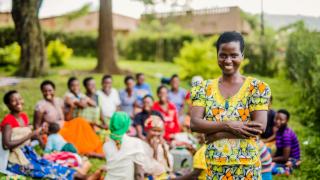
There is a distinct ‘all hands on deck’ culture when a goal needs to be met and you’re constantly learning new skills to meet the demand; I’ve never heard someone say that a task is outside of their job description
Working in the charity sector takes a lot of passion, and grit. Every action needs to play a role in the bigger picture and since your income isn’t based on sales from a product – but rather on support from individuals, corporate partnerships, grants and foundations – proving accountability is vitally important. This means that every letter, flyer and ‘thank you’ counts because it’s raising support for the women we serve.
There are no small jobs and teamwork is a massive component of our success. There is a distinct ‘all hands on deck’ culture when a goal needs to be met and you’re constantly learning new skills to meet the demand; I’ve never heard someone say that a task is outside of their job description.
In my time working at four charities, I think a common misperception that many people have about the sector is that it’s a bit of a fluffy profession – sometimes I still have to explain to my grandparents that this is a career path, and that fundraising is more than shaking a collection tin in a Tube station (which is important, too).
I don’t think I’ve ever seen more drive and ambition than in this role; this motivation comes from a core understanding that our success is not just a figure – a bottom line – but rather that our efforts directly impact the lives and wellbeing of so many others.
The best part of my job? The authenticity of being able to say that there are countless challenges and hurdles, but also that powerful, fundamental and positive change is possible.
If you’re looking to work in the charity sector, the road is rarely a straight one. There are few degrees that specialise in third sector careers and our team is composed of a dynamic patchwork of experiences, talents and expertise.
Finding out what you love, what makes you tick, and applying it is a good place to start, and be prepared to set aside some time and resources to volunteer first. We’ll often receive up to 100 applications for entry-level roles, so competition to ‘do good’ is steep, but on the plus side it teaches you that necessary resolve early on.
The best part of my job? The authenticity of being able to say that there are countless challenges and hurdles, but also that powerful, fundamental and positive change is possible.
The incredible women we serve prove that every day.
This blog was written by Paulina Stachnik, Digital and Campaigns Lead at Women for Women International – UK and was originally posted on Refinery29 in January 2018.
Continue reading
Celebrating Graduation Day in the DRC
subtitle:
600 of our programme participants in the DRC have graduated from our 12-month social and economic empowerment programme. It was a chance for our programme graduates to reflect on their journey and share their achievements with their classmates, families and wider communities.
Humanitarianism: A Daily Workout
subtitle:
This World Humanitarian Day, we are reminded of our shared responsibility to support those caught up in global crises. Find out three ways you can exercise your humanitarianism from our Executive Director, Brita Fernandez Schmidt.
Since the Taliban’s return to power in Afghanistan in August 2021, Afghan women have experienced profound changes in their daily lives. The de facto government has reinstated many restrictions, severely limiting the rights and freedoms of women and girls.
Yet, in the face of these challenges, Afghan women have shown extraordinary determination and strength, finding ways to resist and adapt. Here, we explore five significant ways their lives have changed, highlighting both the difficulties they face and their ongoing fight for their rights.

